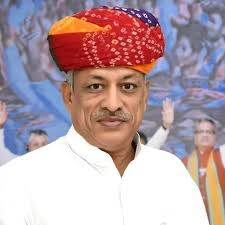
When it comes to milk production in India, Gujarat and its iconic Amul dairy in Anand often come to mind. However, many are unaware that Rajasthan—a state known for its arid deserts—has consistently ranked among the top milk-producing states in the country. According to the Central Government’s 2022 report, Rajasthan topped the nation in milk production that year and currently holds the second position, just behind Uttar Pradesh.
In a remarkable transformation, Rajasthan has not only excelled in milk production but also leads the country in wool production, contributing 45.91 percent nationally. These achievements highlight the state’s robust efforts in dairy and animal husbandry.
As per the Basic Animal Husbandry Statistics 2022 released by the Ministry of Animal Husbandry, Rajasthan contributed 15.5% of the country’s total milk production in 2022. The top five states then were: Rajasthan, Uttar Pradesh (14.93%), Madhya Pradesh (8.06%), Gujarat (7.56%), and Andhra Pradesh (6.97%).
Innovation-Driven Growth in Dairy Sector
This success is largely credited to the state government's innovative and welfare-oriented initiatives for livestock farmers. The Mukhyamantri Dugdh Utpadak Sambal Yojana provides a subsidy of ₹5 per litre to milk producers, significantly boosting both milk production and farmers' incomes.
According to Zoraram Kumawat, Rajasthan’s Minister for Animal Husbandry, Dairy, and Gopalan, a range of innovations are underway to make the state the top milk producer once again. Notably, the state is using Brazilian-imported semen for artificial insemination in Gir cows, a breed known for its high milk yield. This is expected to more than double milk output from these cows.
Moreover, to increase the cow population and ensure higher milk production, the Sex Sorted Semen Scheme is being implemented. These scientific interventions aim to sustainably boost both the quantity and quality of milk produced in the state.
Empowering Women in Dairy Leadership
At the recent three-day women’s training camp organized jointly by the Rajasthan Cooperative Dairy Federation (RCDF) and the National Commission for Women at the Banas Dairy Complex in Palanpur (Gujarat), the Minister highlighted efforts to enhance women's leadership in the dairy sector.
Women secretaries from 48 milk committees in Jaipur, Sikar, Bharatpur, and Tonk are being trained to improve cooperative operations. This will not only enhance committee profits but also strengthen women’s managerial skills. The government plans to extend such training to women associated with every dairy committee in the future.
The dairy sector has emerged as a powerful means of women’s empowerment, and the government is committed to further increasing women’s participation in dairy cooperatives and unions.
Making Dairy a Grassroots Movement
Experts emphasize the need to transform cooperative dairy initiatives into a mass movement, much like in Gujarat and Maharashtra. Rajasthan is promoting healthy competition among dairy cooperatives and encouraging them to engage directly with farmers in villages. The focus is on improving operational models, enhancing profitability, and recognizing high-performing cooperatives.
Dairy unions are being motivated to make the sector more profitable for farmers and to create strong, sustainable models of success.
Delhi Drinks Rajasthan’s Milk
It is no exaggeration to say that a significant share of milk consumed in India’s national capital, Delhi, is supplied by Rajasthan. In the post-White Revolution era, Rajasthan’s emergence as a milk powerhouse despite being a desert region is indeed a matter of pride.
Now, the newly formed Bhajan Lal government in Rajasthan is taking fresh steps to ensure the state regains the number one position in milk production in the country. These ongoing efforts reflect Rajasthan's strong will to combine innovation, cooperation, and grassroots empowerment to lead the dairy sector once again.